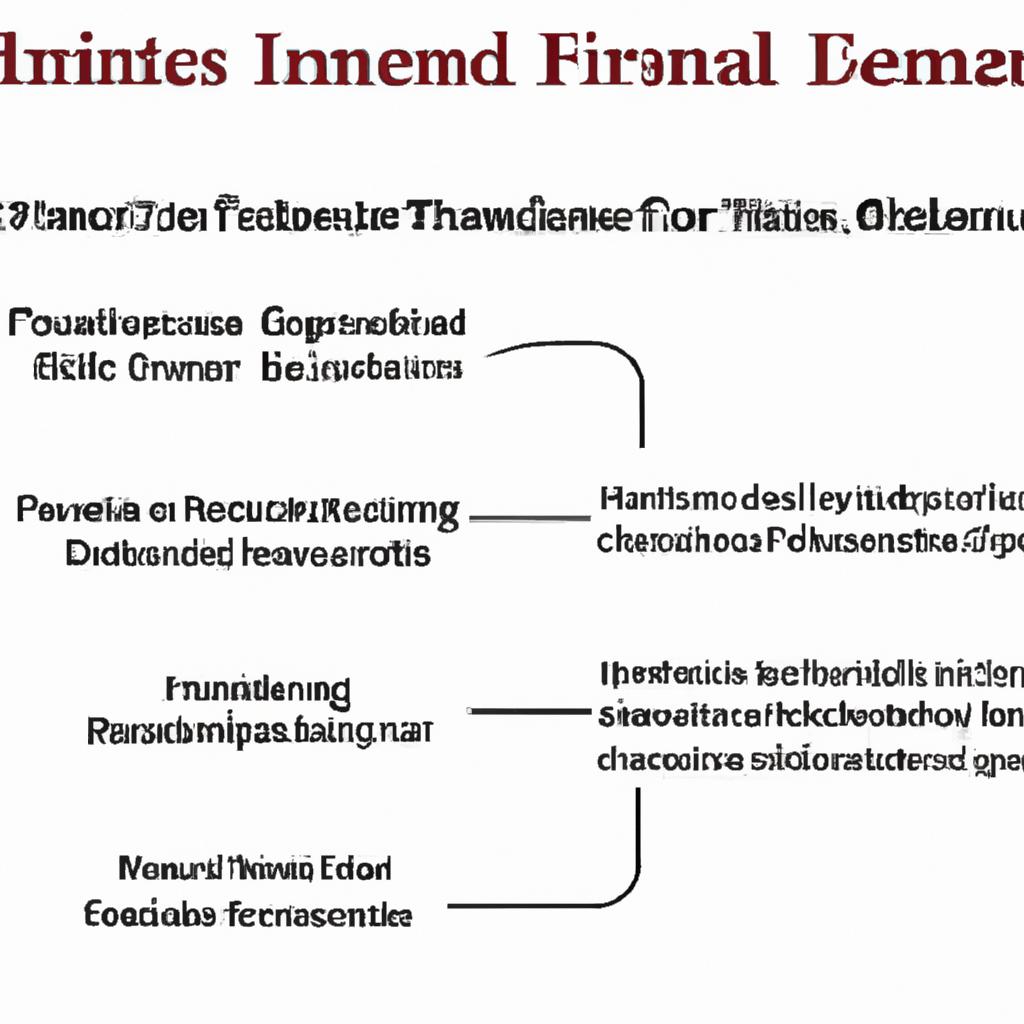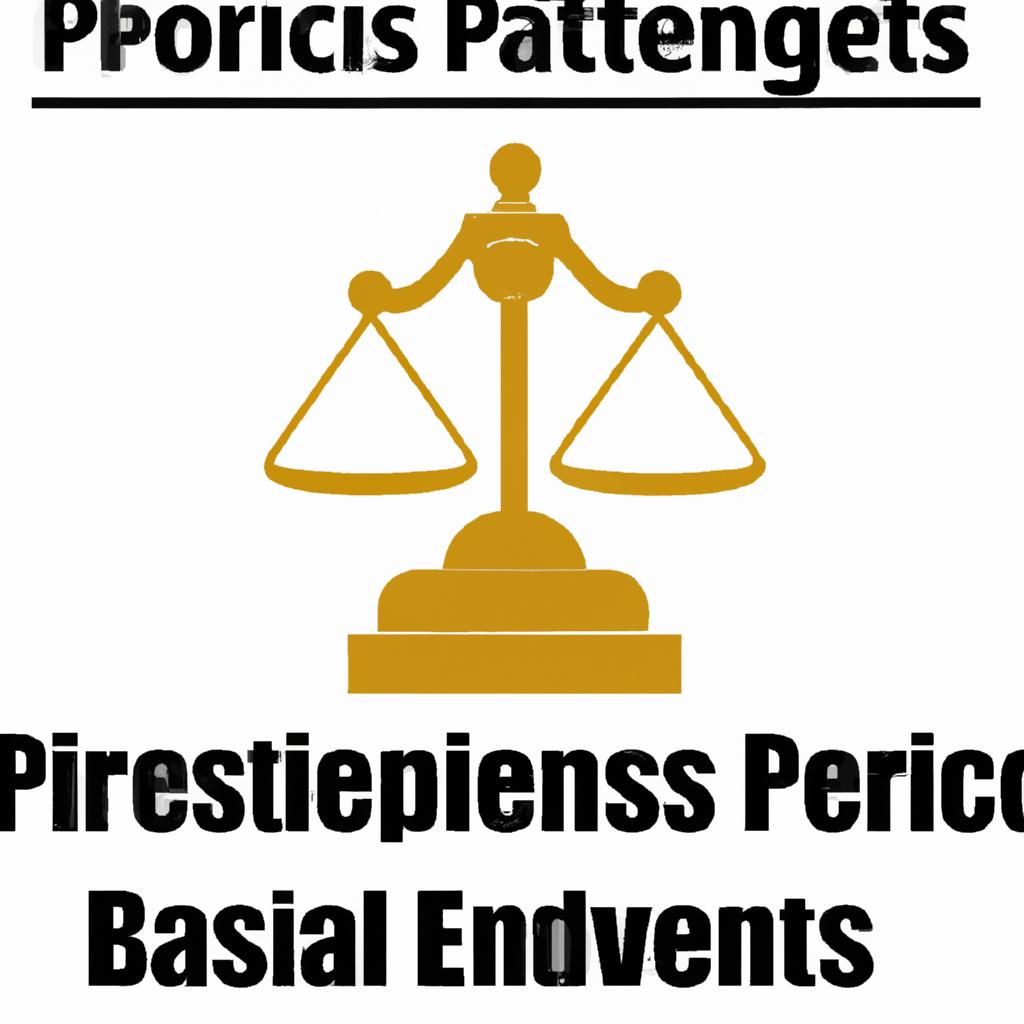Navigating the complexities of estate planning can often feel like deciphering a riddle wrapped in a mystery, particularly when it comes to the distribution of assets to beneficiaries. As seasoned legal practitioners at Morgan Legal Group in the bustling metropolis of New York City, we understand the importance of providing clarity on the timeline for beneficiaries to receive their rightful inheritance. In this article, we will delve into the intricate process of when beneficiaries can expect to obtain their funds, shedding light on the intricacies of probate, Wills, and trusts. Join us on this journey of unraveling the mysteries surrounding the distribution of assets to loved ones.
1. Understanding the Timelines for Distribution of Inheritance Funds to Beneficiaries
One of the most common questions we receive from our clients is when they can expect to receive their inheritance funds as beneficiaries. The timelines for the distribution of inheritance funds can vary depending on several factors, including the complexity of the estate, any disputes among beneficiaries, and the specific instructions outlined in the decedent’s will or trust.
Typically, beneficiaries can expect to receive their inheritance funds within a few months to a year after the decedent’s passing. However, in some cases, the distribution process may take longer if there are legal challenges or complex estate planning issues that need to be resolved. It is important for beneficiaries to be patient during this process and to work closely with their estate planning attorney to ensure that their rights are protected and that the distribution of funds is handled according to the law.

2. Factors Affecting the Speed of Fund Disbursement to Estate Beneficiaries
can vary depending on a variety of circumstances. One key factor is the complexity of the estate in question. Larger estates with multiple assets and beneficiaries may take longer to disburse funds than smaller, simpler estates. Additionally, the presence of any disputes or challenges to the will can also delay the process. **Other factors that can affect the speed of fund disbursement include**:
- The efficiency of the executor or administrator handling the estate
- The timeliness of required paperwork and documentation
- The involvement of multiple financial institutions or government agencies
Ultimately, the timeline for beneficiaries to receive their funds will depend on these and other factors unique to each individual estate. It is important for beneficiaries to be patient and work closely with their legal counsel to navigate the complex process of fund disbursement.
| Factors | Effect | Importance |
|---|---|---|
| Complexity of estate | Delays disbursement | High |
| Disputes or challenges | Can prolong the process | Medium |
| Efficiency of executor | Can expedite funds | High |

3. Best Practices for Ensuring Efficient and Timely Payment to Heirs and Devisees
Efficient and timely payment to heirs and devisees is crucial in the estate planning process. Knowing when beneficiaries will receive their inheritances can help ease any anxieties or uncertainties they may have. Here are some best practices to ensure a smooth distribution of assets:
- Communication: Keeping open lines of communication with beneficiaries can help manage their expectations and keep them informed throughout the process.
- Documentation: Properly documenting the deceased’s assets and liabilities can prevent delays in distributing the estate to heirs and devisees.
- Legal Compliance: Ensuring that the distribution process complies with state laws and the terms of the Will can prevent disputes and delays.
| Stage | Estimated Time Frame |
|---|---|
| Probate process | 6 months to several years |
| Asset distribution | After probate process is completed |
By following these best practices and understanding the typical timeline for distributing assets, heirs and devisees can have peace of mind knowing when they can expect to receive their inheritances.

4. Legal Remedies for Beneficiaries Experiencing Delays in Receiving their Inherited Assets
Beneficiaries who are experiencing delays in receiving their inherited assets may feel frustrated and uncertain about when they will finally receive their rightful inheritance. However, there are legal remedies available to help expedite the process and ensure that beneficiaries receive what is rightfully theirs in a timely manner. One legal remedy that beneficiaries can pursue is filing a petition with the probate court to compel the executor to distribute the assets according to the terms of the Will.
In addition to filing a petition with the probate court, beneficiaries can also seek the assistance of an experienced estate planning attorney to help navigate the legal process and ensure that their rights are protected. An attorney can help beneficiaries understand their legal rights, negotiate with the executor on their behalf, and take any necessary legal action to ensure that the assets are distributed promptly. By enlisting the help of an attorney, beneficiaries can increase their chances of receiving their inherited assets without unnecessary delays.
Q&A
Q: When do beneficiaries typically receive their inheritance money?
A: Beneficiaries usually receive their inheritance money after the probate process is complete. This can take anywhere from a few months to a few years, depending on the complexity of the estate.
Q: Can beneficiaries access their inheritance before the probate process is finished?
A: In some cases, beneficiaries may be able to access a portion of their inheritance early through a process called an advance distribution. This typically requires court approval and is not always granted.
Q: What factors can delay the distribution of inheritance money to beneficiaries?
A: Common factors that can delay the distribution of inheritance money include disputes among heirs, contested wills, outstanding debts or taxes owed by the estate, and the need to sell assets to pay off creditors.
Q: Are there any strategies beneficiaries can use to expedite the distribution of their inheritance money?
A: Beneficiaries can help speed up the process by providing all necessary documentation promptly, staying in communication with the executor of the estate, and avoiding unnecessary disputes or legal challenges.
Q: What should beneficiaries do if they feel that they are being unfairly kept from their inheritance money?
A: If beneficiaries believe they are being unfairly denied access to their inheritance money, they may need to seek legal assistance to enforce their rights. It is important to consult with a knowledgeable attorney who specializes in probate and estate law.
Concluding Remarks
In conclusion, the timing of when beneficiaries receive their money can vary depending on various factors such as the type of benefit, the processing speed of the government agency, and the specific circumstances of the case. It is important for beneficiaries to stay informed and be patient during the process. Remember, whether it’s a timely payment or a delayed one, the support is always on its way. Thank you for reading!
 When a loved one passes away, it can be a difficult and emotional time for the surviving family members. In addition to dealing with the grief and loss, there are also practical matters that need to be addressed, such as the distribution of the deceased person’s assets. This often includes the question of when beneficiaries will receive their inheritance, or in other words, when do beneficiaries get their money?
When a loved one passes away, it can be a difficult and emotional time for the surviving family members. In addition to dealing with the grief and loss, there are also practical matters that need to be addressed, such as the distribution of the deceased person’s assets. This often includes the question of when beneficiaries will receive their inheritance, or in other words, when do beneficiaries get their money?
The answer to this question varies depending on several factors, including the type of asset, the individual’s estate planning, and any legal proceedings that may need to be completed. In this article, we will explore the various scenarios in which beneficiaries can expect to receive their inheritance and provide practical tips to ensure a smooth distribution process.
Types of Assets and their Distribution Timelines
First and foremost, it is important to understand that not all assets are distributed through the same process and timeline. Here are some of the most common types of assets and how they are typically distributed to beneficiaries:
1. Life Insurance Policies – Life insurance policies are often one of the easiest and quickest assets to distribute. This is because the beneficiary designation form, which the policyholder fills out, specifies who the policy’s death benefits should go to. Upon the death of the policyholder, the insurance company will typically pay out the death benefit directly to the designated beneficiaries.
2. Bank Accounts – Similar to life insurance policies, bank accounts with designated beneficiaries can be distributed fairly quickly. The funds will be transferred to the beneficiaries upon providing a certified copy of the death certificate and proper identification.
3. Retirement Accounts – Retirement accounts, such as IRAs and 401(k)s, also come with a designated beneficiary. The distribution process is a bit more complex, as it involves several tax considerations. However, once the tax issues are resolved, the beneficiaries can expect to receive their portion of the retirement account’s funds.
4. Real Estate – One of the most valuable assets an individual can leave behind is real estate. The distribution process for real estate can vary depending on whether the property was held solely, jointly, or as part of a trust.
Benefits and Practical Tips
As you can see, the distribution timeline for assets can vary widely. However, there are certain benefits and practical tips that can help to expedite the process and ensure that beneficiaries receive their inheritance as soon as possible.
1. Consult with a Professional – It is always advisable to seek the guidance of a professional estate planning attorney when it comes to navigating the distribution process. An attorney can review the will, trust, and other relevant documents to determine the best course of action for distributing assets.
2. Have a Detailed Inventory of Assets – Having a detailed inventory of all assets, including insurance policies and retirement accounts, can help the attorney and beneficiaries identify all assets that need to be distributed. This can significantly speed up the process and prevent disputes among beneficiaries.
3. Keep Beneficiary Designations Updated – It is crucial to regularly review and update beneficiary designations on assets such as life insurance policies and retirement accounts. In the event of a divorce or the passing of a designated beneficiary, having up-to-date information can avoid complications during the distribution process.
4. Consider Trusts – Individuals with significant assets may want to consider setting up a trust to ensure a smooth distribution process. Trusts can also help to avoid probate, which can be a lengthy and costly process.
Case Study: The Importance of Legal Proceedings
In some cases, the distribution of assets may be delayed due to legal proceedings. This was the case for the famous artist Prince’s estate, which is still in probate years after his death. This is mainly due to the fact that the singer did not have a will, and state laws dictate how his assets should be distributed.
In another example, the estate of Robin Williams went through a lengthy probate process due to disputes between his children and his widow over his personal belongings. This case emphasizes the importance of clear and updated estate planning to avoid delays and conflicts among beneficiaries.
First Hand Experience: A Beneficiary’s Perspective
To further understand the process of receiving an inheritance, we spoke to Jane, who inherited a considerable amount from her grandmother’s will. She shared her experience and noted that the distribution process was relatively seamless, thanks to her grandmother’s clear and updated estate planning. However, she also highlighted the importance of having patience and understanding legal procedures that may delay the distribution process.
In Conclusion
In summary, when do beneficiaries get their money? The answer depends on the type of asset, the individual’s estate planning, and any legal proceedings that may need to be completed. Consulting with a professional, having a detailed inventory of assets, keeping beneficiary designations updated, and considering trusts are practical tips that can help to expedite the process. In the end, it is crucial to have clear and updated estate planning to avoid delays and conflicts among beneficiaries.


